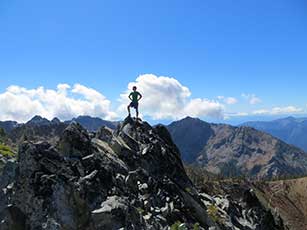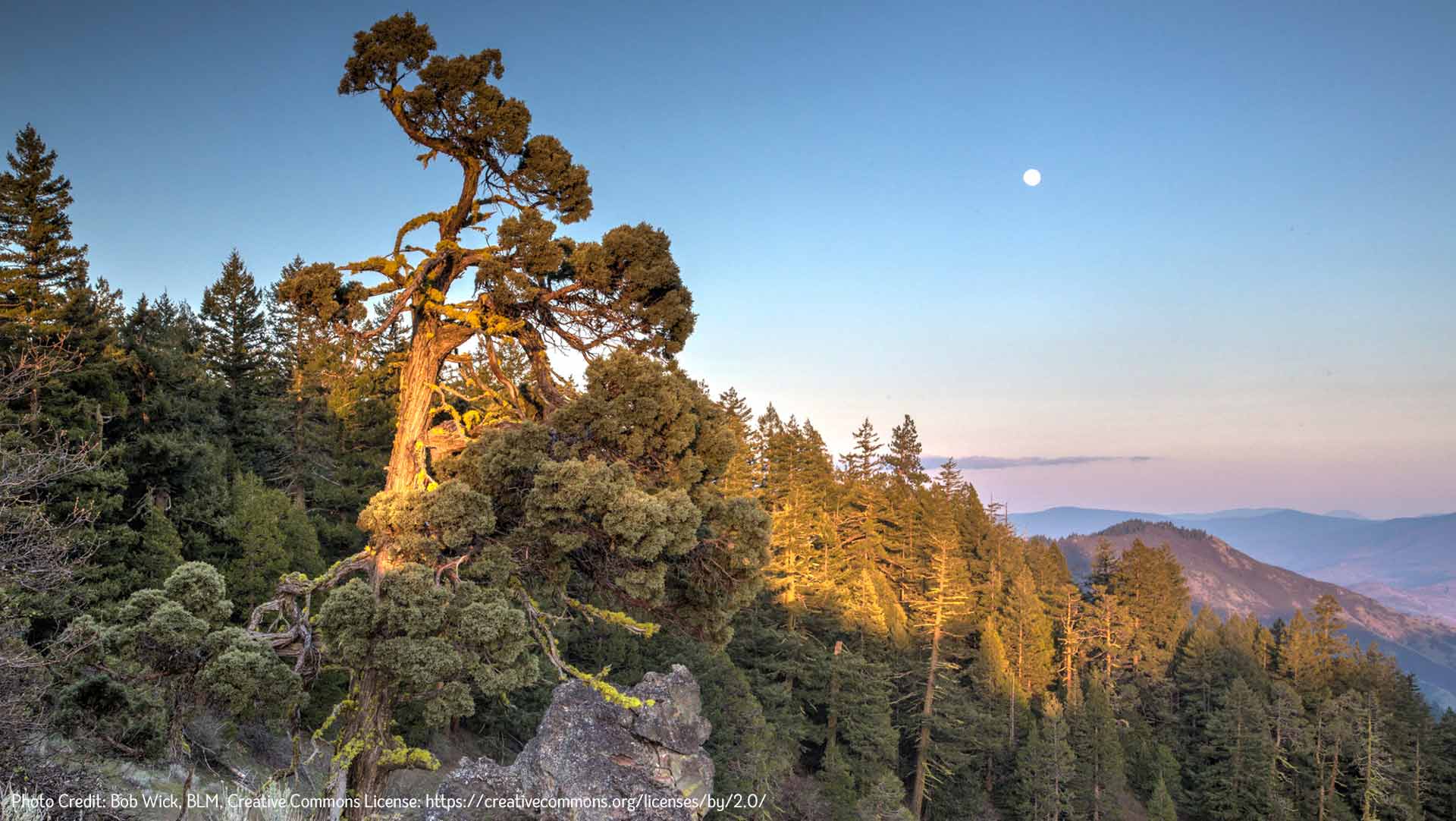 Samford in Oregon gives you the opportunity to spend a fall semester in Oregon’s beautiful Cascade Mountains, earning 17 academic credits during a four-month conversation with professors and other Christian college students who love to read books, ask big questions, confront big ideas and get closer to the land. Our academic partner–The Oregon Extension–has provided this opportunity since 1975, focusing on one topic of study at a time through daily reading, small group discussion and one-on-one conversations with faculty.
Samford in Oregon gives you the opportunity to spend a fall semester in Oregon’s beautiful Cascade Mountains, earning 17 academic credits during a four-month conversation with professors and other Christian college students who love to read books, ask big questions, confront big ideas and get closer to the land. Our academic partner–The Oregon Extension–has provided this opportunity since 1975, focusing on one topic of study at a time through daily reading, small group discussion and one-on-one conversations with faculty.
Eligibility & Instructions
You must be at least a second-semester freshman and have a minimum GPA of 3.0.
First, contact your faculty advisor to determine if the program is compatible with your major. If it is, then you must submit the following documents to Howard College of Arts and Sciences Associate Dean Don Bradley by March 6, 2023 (for Fall semester 2023).
- Résumé
- Statement of Personal Interest of approximately 100 words that broadly describes personal interests, future career goals, skills hoping to be gained, and ways in which you will contribute to the community.
Once you have met with one of The Oregon Extension liaisons at Samford (Don Bradley or Betsy Dobbins), follow the instructions and complete application documents as listed at the link below.
Oregon Extension Application Information
Academic Credit
You must register for 17 credit hours through The Oregon Extension, selecting courses which align with your major/minor requirements and personal interests. Samford’s Oregon Extension liaisons and your academic advisor will help you determine the Samford course most relevant to each Oregon Extension course. You must then complete a complete a Study Away Form. Academic credits are provided by Eastern Mennonite University, a SACSCOC accredited institution.
Cost and Financial Aid
You will be charged Samford’s full-time tuition and fees for the semester, as well as The Oregon Extension housing costs, the student activity fee and the textbook fee. You will be responsible for purchasing transportation to Oregon, groceries and meal preparation. If you are eligible, federal, state and private outside financial assistance may be applied towards Samford charges (Samford institutional aid may not be applied to cover Samford charges). Samford will then pay the Oregon Extension tuition, housing, and fees on your behalf.
FAQs
Samford student Caleb Case answers your Oregon Extension FAQs
What were your classes like? I took the generic segments and then focused on two research projects that piqued my interest. Students meet with professors on researching topics that both cover course requirements, attainable academic writing and a focus on the student's interest.What is a typical day like? Class is at 9 a.m. Sometimes you have to wake up earlier for chores like milking goats. Classes last usually for an hour-and-a-half. The lecture is a broad range of topics relating to the theme of the segment. Then reading and note-taking are assigned for the rest of the day, with discussions regarding the reading the next day. However, there are ways to fill your time besides reading, and other segments have different daily schedules.
What are the sustainability jobs? The Oregon Extension has a small-scale farm, where students are actively involved in chores such as gardening, trash collection, recycling, biochar, woodcutting and cleaning. We are also responsible for minimizing our living impact by conserving food by adding to chicken and goat feed, composting and reuse of non-recyclable plastics.
What was your favorite part of the experience? The trips were pretty well thought out and gave a good western feel, even to the veteran traveler to the western states. I enjoyed the trips, including two hikes into Mt. McLaughlin, and the optional week ultra-hike/camp into Yosemite National Park. We also went on a trip to the Oregon coast, and had a few days in San Francisco.
How should I prepare? Pack very minimally. There are plenty of times to thrift shop, and bringing home a bunch of souvenirs is likely. Pack for southern hot and extreme cold. Prep for cooking if you are not well versed. It brings cabin dynamics together extremely well to do communal meals, such as everyone picking a day to cook and clean and eat together. Be ready to deal with issues with other people face-to-face because in this close-knit community fostering resentment will create problems better solved by addressing them straight away.

